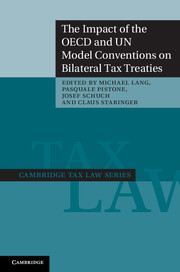Book contents
- Frontmatter
- Contents
- Contributors
- Preface
- Table of cases
- Table of statutes
- General report
- 1 Argentina
- 2 Australia
- 3 Austria
- 4 Belgium
- 5 Brazil
- 6 Canada
- 7 Chile
- 8 China
- 9 Colombia
- 10 Croatia
- 11 The Czech Republic
- 12 Estonia
- 13 Finland
- 14 France
- 15 Germany
- 16 Hong Kong
- 17 Hungary
- 18 India
- 19 Italy
- 20 Lebanon
- 21 Liechtenstein
- 22 The Netherlands
- 23 New Zealand
- 24 Norway
- 25 Peru
- 26 Poland
- 27 Portugal
- 28 Romania
- 29 The Russian Federation
- 30 Serbia
- 31 Slovakia
- 32 Slovenia
- 33 Spain
- 34 Sweden
- 35 Uganda
- 36 The UK
- 37 The USA
- Index
- References
13 - Finland
Published online by Cambridge University Press: 05 November 2014
- Frontmatter
- Contents
- Contributors
- Preface
- Table of cases
- Table of statutes
- General report
- 1 Argentina
- 2 Australia
- 3 Austria
- 4 Belgium
- 5 Brazil
- 6 Canada
- 7 Chile
- 8 China
- 9 Colombia
- 10 Croatia
- 11 The Czech Republic
- 12 Estonia
- 13 Finland
- 14 France
- 15 Germany
- 16 Hong Kong
- 17 Hungary
- 18 India
- 19 Italy
- 20 Lebanon
- 21 Liechtenstein
- 22 The Netherlands
- 23 New Zealand
- 24 Norway
- 25 Peru
- 26 Poland
- 27 Portugal
- 28 Romania
- 29 The Russian Federation
- 30 Serbia
- 31 Slovakia
- 32 Slovenia
- 33 Spain
- 34 Sweden
- 35 Uganda
- 36 The UK
- 37 The USA
- Index
- References
Summary
The relevance of the OECD and UN Model Conventions and their Commentaries for the interpretation of Finnish tax treaties
Most of Finland's tax treaties are directly based on the OECD Model Tax Convention on Income and on Capital (OECD Model), whereas tax treaties concluded with developing countries may have certain elements taken from the United Nations Model Double Taxation Convention between Developed and Developing Countries (UN Model). Due to the limited number of treaties partly based on the UN Model, this section focuses mainly on the OECD Model and its Commentaries. Finland has been a Member country of the OECD since 1969 and currently has around seventy bilateral double tax treaties and one multilateral tax treaty. The Nordic Convention (Nordic Tax Treaty) covers Denmark, the Faroe Islands, Finland, Iceland, Norway and Sweden. Most Finnish tax treaties are based on the 1977 version of the OECD Model. New treaties are generally based on the latest version of the OECD Model. In addition to the double tax treaties, Finland has furthermore concluded other tax-related agreements with a number of countries and has negotiated around forty tax information exchange agreements with tax haven countries.
There are only a few court cases, articles and books where the relevance of the OECD Model and its Commentaries has been briefly commented on. Furthermore, very little has been written about the legal status of the UN Model and its Commentaries. Because of the limited material concerning the role that the Commentaries play in the interpretation of tax treaties, their status cannot be considered to be completely clear. Therefore, some opinions expressed in this chapter reflect only the personal opinions of the authors. There is, however, a consensus amongst legal scholars that the Commentaries are in practice regarded as having a great value when interpreting Finnish tax treaties. This assumption has been supported by the Supreme Administrative Court in its decision KHO 2002:26. The Supreme Administrative Court stated that: ‘Even though the Commentaries to the Model Tax Convention are not a formally binding source for interpretation, it has relevance as a tool of interpretation, especially in situations where the tax treaty follows the systematic laid down in the OECD Model Convention.’
- Type
- Chapter
- Information
- Publisher: Cambridge University PressPrint publication year: 2012

